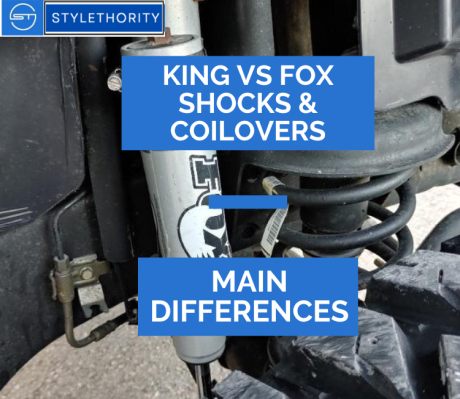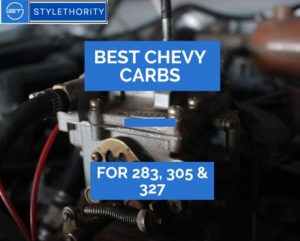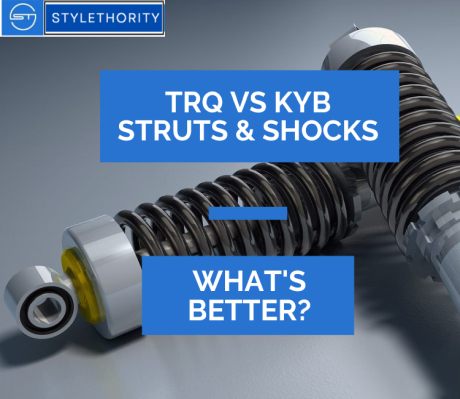Best Spark Plugs for Hyundai Elantra & Sonata: What Fits
Stylethority is reader-supported. When you buy through links on the site, we may earn a commission.
Spark plugs are one of those replacement parts. Inexpensive, but essential to how your vehicle behaves. I know, a boring intro – but it’s true.
I’ll be frank: the best spark plugs for Hyundai Elantra and Sonata are NGK or Denso. Both of these brands have been Hyundai OEMs depending on the specific generation.
For example, this NGK spark plug is OEM on 2011-2016 Elantra a.k.a. the 5th gen. The exact part number is 18846-11070.
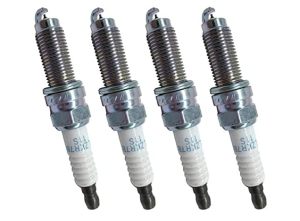
The exact OE replacement spark plugs on 5th gen Elantra. Iridium material for extra durability and optimal performance. These make sure everything runs as if your Elantra were new.
Plenty of Denso or NGK plugs fit both Hyundai classics, however. Some options:
➥ For older gens, you can check these Denso Platinum TTs. They fit most 1996-2011 Elantra trims and are compatible with 1999-2010 Sonata (Base and GLS). The fuel economy’s awesome on these.
➥ On newer vehicles, you’d want the NGK LKR7DIX-11S. Very durable, these are compatible with pretty much the whole 2012-2016 Elantra trim line-up and 2015-2019 Sonata. The Elantra GT is supported up to its 2020 year.
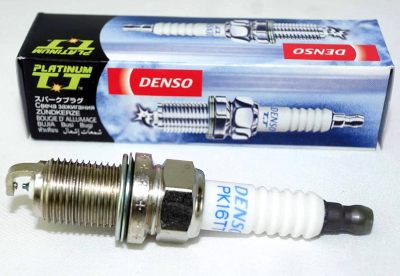
Denso's platinum king:. These are double-tipped for optimal ignition and performance. Great fuel economy too. Perfect option for 2nd-4th gen Elantra and 3rd-5th gen Sonata.
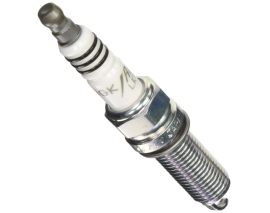
One of NGK's iridium staples for various Asian car models. Unmatched durability and honestly, not too expensive. Fits well on 7th gen Sonata and 5th gen Elantra.
Do you prefer NGK to Denso on older models? No worries, you can swap things.
These NGK G-Power plugs are an alternative to the Denso above. The only difference is them supporting one less Elantra gen: 1996 to 2007 Elantra, and 1999-2010 Sonata.
Important note: I want to emphasize double-checking your model’s spark plug fitment. Both of these cars are Hyundai’s poster children in the sedan segment.
There are many trim options, and sometimes engine differences too (2.0L vs 1.8L on newer Elantras, etc.) Different engines will involve different-sized sockets, which prompts specific plug fitments.
Denso and NGK sometimes have a stricter cut-off point for the base or GLS models. However, the same spark plug will fit later-gen SE or GT options.
Some fundamentals:
Behind the scenes of Elantra & Sonata spark plugs
Here’s the thing. You don’t have an obligation to use NGK or Denso. Champion used to be OEM on some select Tucson models, for example. And other options like Bosch or even E3 cheapos exist.
So why would two Japanese brands be the most optimal pick?
A simple answer: geographic proximity. In the world of auto manufacturing, logistics can be king. It’s much easier to cut costs without sacrificing quality when you work with suppliers close to you.
This is why you see most Asian cars running NGK/Denso as an OEM. In a similar manner, a lot of European vehicles default to Bosch for their OE plugs. It’s not only cheaper – it’s also way easier for the manufacturer to perform quality control.
What about the material used?
I’m not sure if you noticed, but for the late 90s-early 10s models both NGK and Denso list platinum as the best option for your Hyundai.
A good example is the NGK 7090 BKR5EGP. It covers Sonata’s 4th/5th gen (1999-2010) and Elantra’s 2nd and 3rd gen (1996-2007).
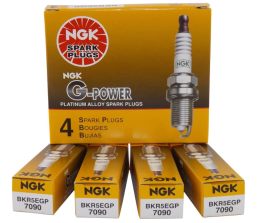
The leading alternative to Denso's Platinum TT options. Slightly less performing, but the cold-rolled threads are extra gentle on cylinder heads. Fits 2nd/3rd gen Elantra and 4th/5th gen Sonata.
I’d say this is an unspoken rule of sorts. Spark plug evolution goes Copper → Platinum → Iridium. Each of these is more durable and ‘punchy’ than the other, but also more expensive.
Somewhere around the 10s, the OE on Elantra and Sonata switched to iridium spark plugs. The NGK LKR7DIX-11S plug I recommended earlier is a prime example of that.
The thing with materials is you can always upgrade them, but it’s not recommended to downgrade. In other words, you can put some iridium plugs on a car that had platinum as the OE.
However, going iridium → platinum might reduce the spark plugs’ longevity. It might also slightly affect your car’s performance.
On Elantra & Sonata spark plug gaps
This one’s slightly tricky.
The Elantra is more straightforward. Hyundai’s compact car king has a gap of 0.0394 to 0.0433 inches (1.0 to 1.1mm). Some people advise you to stick to the maximum range of 0.43” on newer (2017-2020) Elantras.
I admit I don’t know as much about the Sonata. I’ve seen some people gap their Sonatas lower – especially on turbo engines where things could go as low as .032” to .035”.
It’s common practice that vendors sell their spark plugs pre-gapped depending on the application. So in theory, you don’t have to do anything except plug-and-play. In practice, however, sometimes the pre-gap isn’t there.
In case you’re unsure about your specific year/trim, you can always head over to the Hyundai Forums. The community is awesome, and people often share original manuals and whatnot.

One of NGK's iridium staples for various Asian car models. Unmatched durability and honestly, not too expensive. Fits well on 7th gen Sonata and 5th gen Elantra.
Moments of DIY fun:
Changing your Hyundai’s spark plugs
I mean, not sure if we can classify it as ‘fun’, but plenty of people enjoy tinkering around when it comes to their personal cars.
Sometimes it’s not just a car, but rather a project, right?
Usually in my posts, I seek out easy-to-follow grassroots videos. Here’s a very useful DIY tutorial on changing the plugs on a 2017 Elantra. While this is specifically made for the 6th gen Elantra, it shares some common points with previous years too:
Again, keep in mind the engine specifications. This video is on the most commonly seen 2.0L engine, but the Korean 1.8L Elantra also gets exported to overseas markets.
That’s pretty much it on the best spark plugs for Hyundai Elantra and Sonata. I haven’t included the latest gens, because I wouldn’t expect you to have spark plug issues so early.
(Sorry if you do, though!)
In general, considering it’s 2023 now I expect a lot of the ~2013 Elantra models to need a replacement. Similarly, early-to-mid 10s Sonatas like 2011, 2012, or 2013 might need spark plug refreshment too.
In case you have more work to do on your Hyundai car, you can check out some of my other articles. I’ve written on why cheap suspension like FCS might not be a very good option on sedans.
On a somewhat related note, I’ve also discussed KYB and OEM suspension. Similar to the Denso/NGK situation, suspension parts can also rely on geographic proximity for doing things right…in a quality way.
Thanks for reading!
- Woolx vs Smartwool: Discussing Some Details - October 4, 2023
- Best Struts For Honda Accord & Element: What Works - September 22, 2023
- Bilstein vs Monroe Shocks: My Opinion On What Works Best - September 19, 2023



